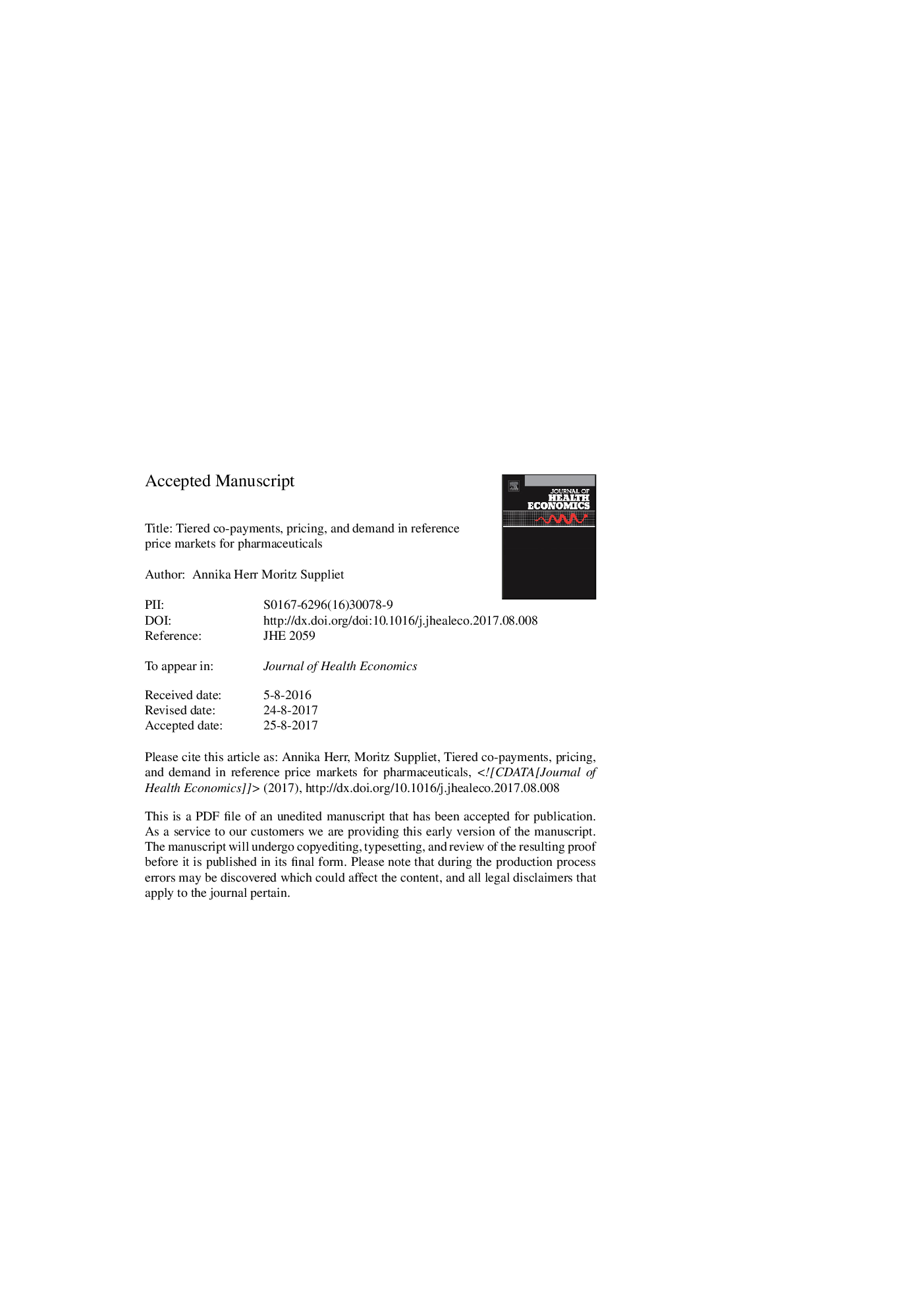| Article ID | Journal | Published Year | Pages | File Type |
|---|---|---|---|---|
| 5100710 | Journal of Health Economics | 2017 | 36 Pages |
Abstract
Health insurance companies curb price-insensitive behavior and the moral hazard of insureds by means of cost-sharing, such as tiered co-payments or reference pricing in drug markets. This paper evaluates the effect of price limits - below which drugs are exempt from co-payments - on prices and on demand. First, using a difference-in-differences estimation strategy, we find that the new policy decreases prices by 5 percent for generics and increases prices by 4 percent for brand-name drugs in the German reference price market. Second, estimating a nested-logit demand model, we show that consumers appreciate co-payment exempt drugs and calculate lower price elasticities for brand-name drugs than for generics. This explains the different price responses of brand-name and generic drugs and shows that price-related co-payment tiers are an effective tool to steer demand to low-priced drugs.
Keywords
Related Topics
Health Sciences
Medicine and Dentistry
Public Health and Health Policy
Authors
Annika Herr, Moritz Suppliet,
